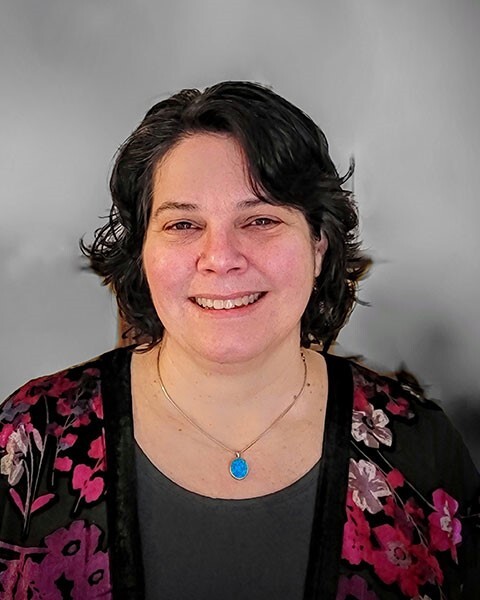
Recorded Mini Workshop #22- Using Acceptance-based Behavioral Interventions to Address Stress and Cultivate Well-being and Empowerment Across Contexts (2023 CONVENTION RECORDING)
-
Register
- Non-member - $35
- Member - $25
- Student - $15

Natalie Arbid, Ph.D.
Senior Clinical Training Manager
University of California, Los Angeles
Pasadena, California

Liz Roemer, Ph.D.
Professor
University of Massachusetts Boston
Boston, Massachusetts
Elizabeth Eustis, PhD (she/her/hers)
Assistant Research Professor
Boston University
Boston, Massachusetts
Jennifer H. Martinez, Ph.D.
Assistant Professor
Suffolk University
Boston, Massachusetts
Recorded on Sunday, November 19, 2023 at the 57th Annual ABCT Convention in Seattle, WA
1.5 CE Credits Awarded
$15 Student ABCT Members / $25 ABCT Members / $35 Non-Members
All prices listed in US currency
Abstract:
Acceptance-based behavioral therapy (ABBT) is an umbrella term that encompasses mindfulness-, acceptance-, and contextual-based cognitive therapies (Roemer & Orsillo, 2020). ABBT’s principles and strategies have been adapted to effectively address Generalized Anxiety Disorder (GAD) by reducing GAD, worry, depressive symptoms, and comorbid diagnoses, while also increasing quality of life (e.g., Roemer, Orsillo, & Salter-Pedneault, 2008; Hayes-Skelton, Roemer, & Orsillo, 2013). Further, preliminary studies have demonstrated the effectiveness of ABBT’s central elements (i.e., mindfulness and decentering skills, acceptance-based strategies, and values clarification and values-based action) in addressing distress in various contexts, including acculturative and racism-related stress.
As a result, we have developed a range of adapted ABBT programs to promote well-being with specific populations. In this workshop, we will present a brief overview of the central principles of ABBT as a foundation for adaptations. We will highlight examples of adaptations to illustrate how these principles may be adapted for use in specific contexts and with specific populations. First, we will discuss adaptations for university students and the way we took ABBT out of therapy room and into in person workshops and online. Then we will share adaptions we made to align with the Latinx student experience. Lastly, we will focus on the ways ABBT can be adapted to address racism-related stress and increase values-based living. We will then engage in a group activity to develop new adaptations that audience members’ can use in their own contexts. This workshop is open to clinicians across all experience levels, including students and trainees.
Learning Objectives:
At the end of this workshop, the learner will be able to:
1. Describe the central principles of an ABBT approach to well-being and health promotion.
2. Identify contextual barriers that may impact the adaptation of ABBTs.
3. Apply ABBT adaptation strategies for use in their own clinical settings.
Recommended Readings:
1. Roemer, L. & Orsillo, S. M. (2020). Acceptance-Based Behavioral Therapy: Treating Anxiety and Related Challenges. New York, NY: Guilford Press.
2. Hayes-Skelton SA, Roemer L, Orsillo SM. A randomized clinical trial comparing an acceptance-based behavior therapy to applied relaxation for generalized anxiety disorder. J Consult Clin Psychol. 2013 Oct;81(5):761-73. doi: 10.1037/a0032871. Epub 2013 May 6. PMID: 23647281; PMCID: PMC3783580.
3. Roemer L, Orsillo SM, Salters-Pedneault K. Efficacy of an acceptance-based behavior therapy for generalized anxiety disorder: evaluation in a randomized controlled trial. J Consult Clin Psychol. 2008 Dec;76(6):1083-9. doi: 10.1037/a0012720. PMID: 19045976; PMCID: PMC2596727., ,
****************************************
All attendees will receive a certificate of completion when the course requirements are satisfied. Certificate of completion is included in the cost of the webinar
The Association for Behavioral and Cognitive Therapies incurs significant administrative cost related to your registration before a webinar. Therefore, there are no refunds for live webinars. If you unable to attend a webinar, we will provide you with the recorded version after the live presentation (which is still eligible for CE credit). If you wish to cancel or request to transfer your webinar registration to another webinar please email your request to membership@abct.org.
ABCT is approved by the American Psychological Association to sponsor continuing education for psychologists. ABCT maintains responsibility for this program and its content
The Association for Behavioral and Cognitive Therapies has been approved by NBCC as an Approved Continuing Education Provider, ACEP No. 5797. Programs that do not qualify for NBCC credit are clearly identified. The Association for Behavioral and Cognitive Therapies is solely responsible for all aspects of the programs
The Association for Behavioral and Cognitive Therapies is recognized by the California Board of Behavioral Sciences for Marriage and Family Therapist (MFT) to offer continuing education as Provider #4600
Association for Behavioral and Cognitive Therapies (ABCT), is recognized by the New York State Education Department’s State Board for Psychology as an approved provider of continuing education for licensed psychologists #PSY-0124

